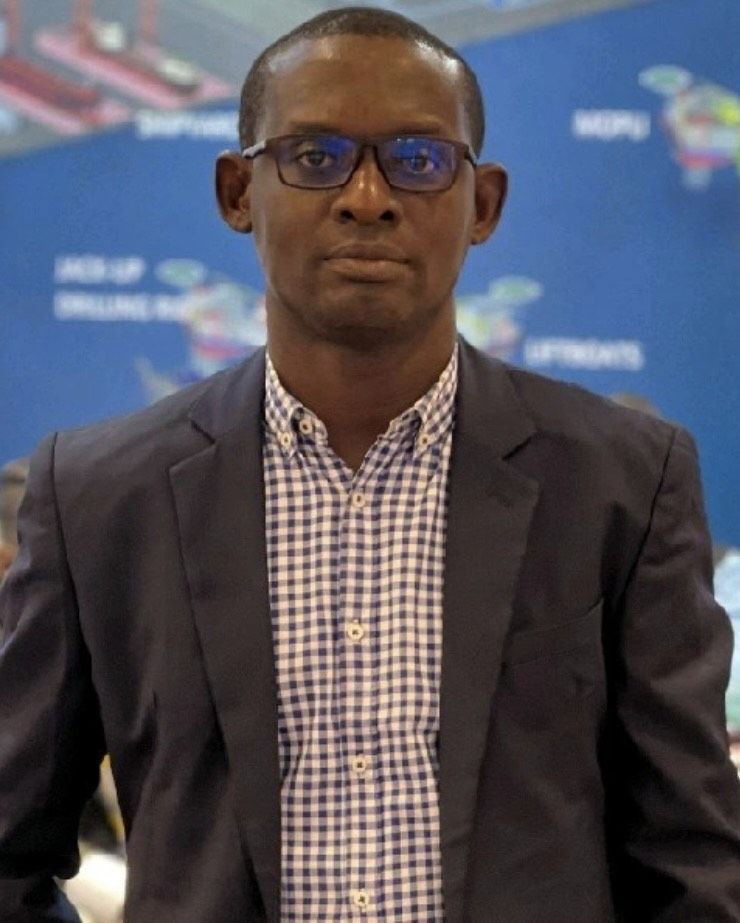
In September 2025, Nigeria’s oil and gas industry was rocked by a high-profile dispute between Dangote Refinery and the Depot and Petroleum Products Marketers Association of Nigeria (DAPPMAN). The clash reignited long-standing debates over pricing, logistics, and control in the downstream petroleum market. In this exclusive interview with TV360 Nigeria’s Opeyemi Owoseni, petroleum engineer Temitope Taiwo offers an unflinching diagnosis of the crisis, tracing its roots to years of policy inertia and unfinished reforms.
A Crisis 15 Years in the Making
The September dispute may have dominated headlines, but according to Taiwo, Project Manager at AJIVIN Group of Companies with nearly two decades of experience across upstream, midstream, and downstream sectors, Nigeria’s refining woes run far deeper.
“If you want to critically assess the situation, you need to go back 18 or 19 years,” Taiwo began. “At the twilight of a past administration, the federal government decided to privatize NNPC refineries. Some were taken up by Dangote and other investors, but in 2008, that sale was revoked. From 2008 until Dangote Refinery came on stream in 2023, we had about 15 years of total inactivity in our refining space.”
In those years, Nigeria continued to export crude and import refined products, an irony that has haunted the economy and drained foreign reserves.
According to him, the vacuum created during that period explains why Nigeria, despite being a major crude producer, remained heavily dependent on imported refined products.
“Within that same period,” he noted, “many companies obtained refinery licenses, but the only one that succeeded fully is Dangote Refinery. That tells you everything you need to know about the structural weaknesses of the sector.”
Taiwo described the September clash between Dangote Refinery and DAPPMAN not as a national crisis but as “a contest between two sets of businesspeople.”
“DAPPMAN runs depots and tank farms, that’s their business. Dangote runs a refinery, that’s his business. Both are private enterprises trying to maximize profit. It’s not a matter for public panic,” he stated.
On DAPPMAN’s Alleged ₦15 Trillion ‘Subsidy’ Request
Reports in September suggested that DAPPMAN had sought a ₦15 trillion “subsidy” from Dangote Refinery to offset depot logistics costs, a move Taiwo described as “economically unrealistic.”
“How do you ask one private company to subsidize another?” he asked. “That’s like saying Dangote should shut down his own operations to keep competitors in business.”
He argued that the public must understand that Dangote Refinery is not a charity, but a private venture financed by massive loans and shareholder funds.
“Dangote Refinery exists to make profits for its stakeholders,” Taiwo said. “Asking him to provide subsidies or to increase pump prices by ₦75 per litre to accommodate depot owners’ logistics is simply asking Nigerians to pay more at the pump.”
According to him, any such price hike would inevitably trigger inflationary pressures across all sectors.
“Once petrol or diesel prices go up, transport fares, food prices, aviation fuel, manufacturing costs, everything follows. It erodes purchasing power and worsens poverty,” he warned.
Economists say this dynamic mirrors Nigeria’s recurring “cost-transfer cycle,” in which inefficiencies within the energy value chain are ultimately borne by consumers.

Dangote’s 4,000-Truck Model: Monopoly or Job Engine?
One flashpoint in the September dispute was Dangote’s decision to deploy a 4,000-truck distribution network instead of relying on depot-based lifting. Critics described it as monopolistic; Taiwo calls it pragmatic.
“It’s not Dangote himself driving the trucks,” he said. “If you consider two drivers per truck, that’s at least 8,000 jobs, 8,000 families. In a country battling unemployment, that’s a positive development.”
He dismissed fears that such vertical integration amounts to a monopoly.
“You can’t call it monopoly when no other refinery is functioning. Before Dangote, we had no working refineries. You can’t monopolize what doesn’t exist.”

“DAPPMAN Must Adapt or Compete”
Addressing the logistics dispute, DAPPMAN’s preference for coastal lifting versus Dangote’s insistence on direct gantry loading, Taiwo said the refinery has every right to dictate how it operates.
“If Dangote says these are the specifications for vessels, then DAPPMAN needs to adapt. They can’t compel a private business to change its operations just to suit their older model.”
He advised DAPPMAN members to build or upgrade their own refineries instead of relying solely on depot operations.
“They can go to Delta, Rivers, Bayelsa, Ogun, or Akwa Ibom, anywhere along the coast and establish modular refineries. That’s how you create competition, not by asking your competitor to subsidize your business.”
On Monopoly, Competition, and Dormant Refineries
Taiwo was emphatic that the monopoly argument holds no water until other refineries start producing. Taiwo’s critique extends to Nigeria’s state-owned refineries, which have consumed billions without producing a single litre of fuel for years.
“NNPC’s four refineries have not produced fuel in over a decade,” he said. “Yet staff are being paid. That’s 10 years of collecting salaries without producing a single litre of fuel. It’s morally wrong and economically wasteful.”
He challenged labour unions, particularly NUPENG and PENGASSAN, to push for refinery rehabilitation instead of obstructing reform.
“Those refineries should either work or be scrapped. Nigerians can’t continue paying for inefficiency.”
Fuel Dumping: A Silent Sabotage
When Dangote Refinery alleged that 3.6 million tons of imported fuel were dumped into Nigeria’s market even as it exported 32 million tons between June and September, Taiwo said it was a classic example of import dependence undermining local productivity.
“Importing refined products may seem cheaper in the short term, but it kills local industries,” he explained. “Refining locally creates jobs, technical expertise, and industrial by-products for other sectors. Importation only exports jobs to other countries.”
He urged the government and the public to “patronize production, not importation.”
Regulatory Reforms and The Way Forward
Looking ahead, Taiwo called for a regulatory reset, urging agencies like the Nigerian Midstream and Downstream Petroleum Regulatory Authority (NMDPRA) and the Nigerian Upstream Petroleum Regulatory Commission (NUPRC) to enforce performance timelines for all licensed refineries.
“We have nearly 2 million barrels per day in refining capacity on paper,” he said. “But only about 650,000 barrels from Dangote and partial NNPC operations are active. That’s just one-third optimization. It’s a national failure.”
He recommended that the government set a two- to three-year deadline for all licensed refineries to begin operations or risk revocation and heavy fines.
“We cannot keep awarding refinery licenses to companies that do nothing with them,” he argued. “If they can’t deliver, let serious investors take over.”
On National Priorities and Economic Resilience
Taiwo ended the interview with a broader reflection on Nigeria’s economic direction.
“Nigeria cannot keep producing crude oil while importing refined products,” he said. “Our infrastructure, policies, and mindset must change from export orientation to production orientation.”
He also lamented the mass exodus of skilled professionals from Nigeria, warning that economic sustainability requires retaining and engaging local talent.
“Everyone wants to ‘japa’ doctors, engineers, teachers,” he said. “But if we keep importing what we can produce, we are only providing jobs for other countries. The economy will collapse if we continue this way.”
For Taiwo, the Dangote–DAPPMAN clash was not just a business rivalry, but a mirror reflecting Nigeria’s larger industrial dilemma: whether the country will continue its cycle of consumption and dependency, or finally embrace production, self-sufficiency, and accountability.
“We must encourage refining, job creation, and industrialization,” he concluded. “That’s the only sustainable path for Nigeria.”
For now, the dust from the Dangote–DAPPMAN dispute may have settled, but the issues it raised monopoly fears, regulatory inertia, and industrial dependency, remain unresolved. Whether Nigeria learns from the episode or repeats its cyclical complacency will define the next chapter of its energy story.


